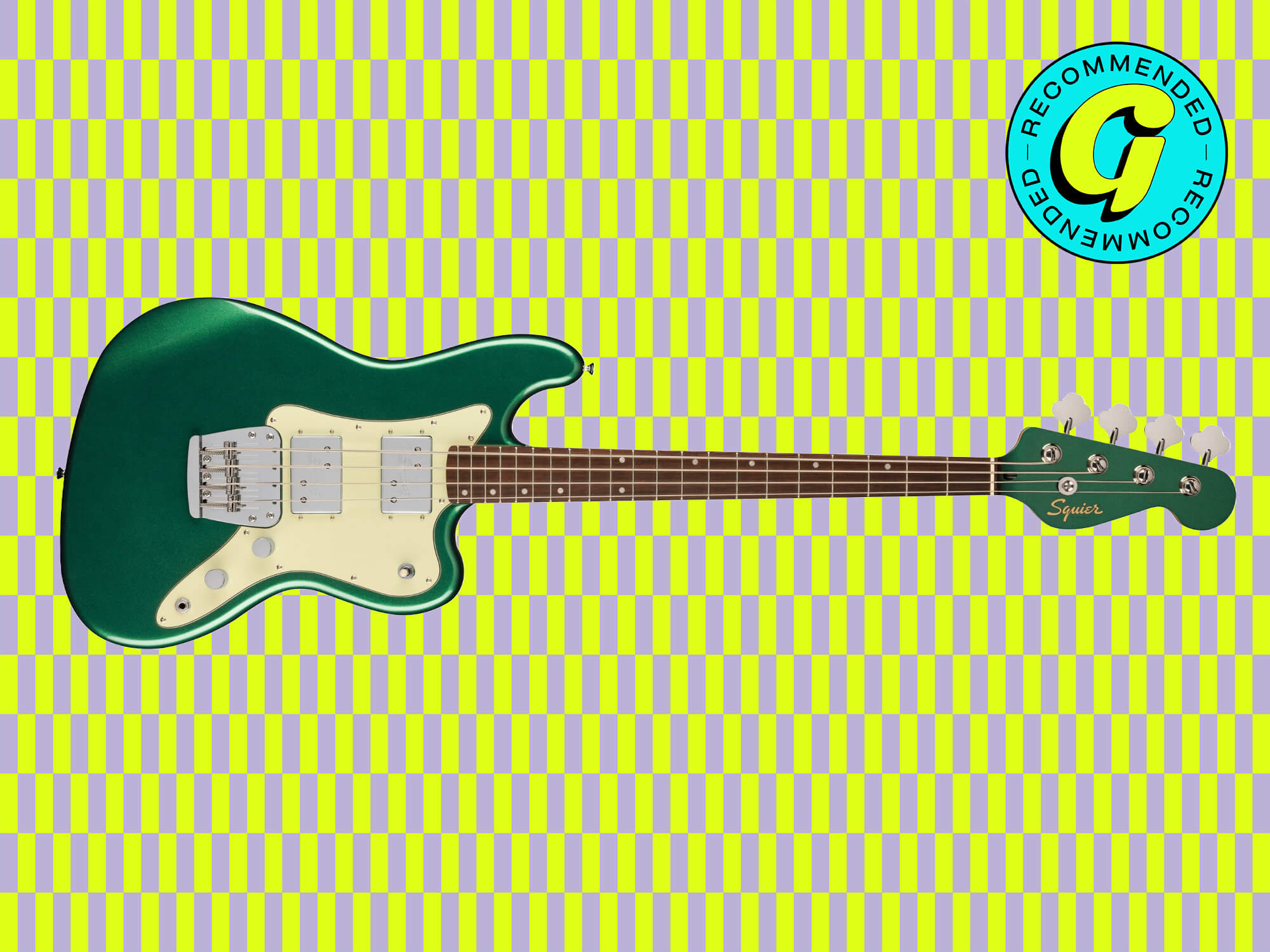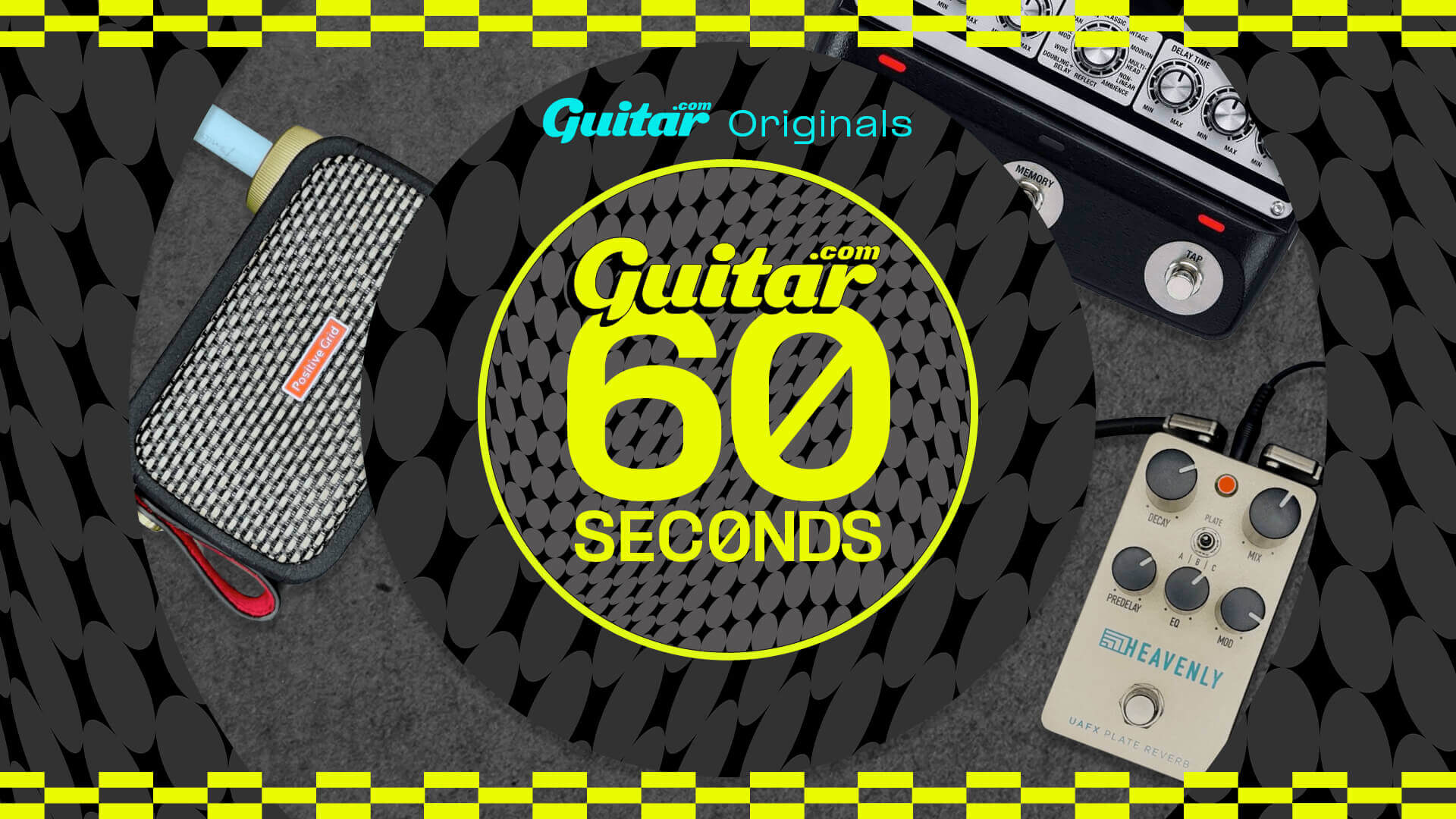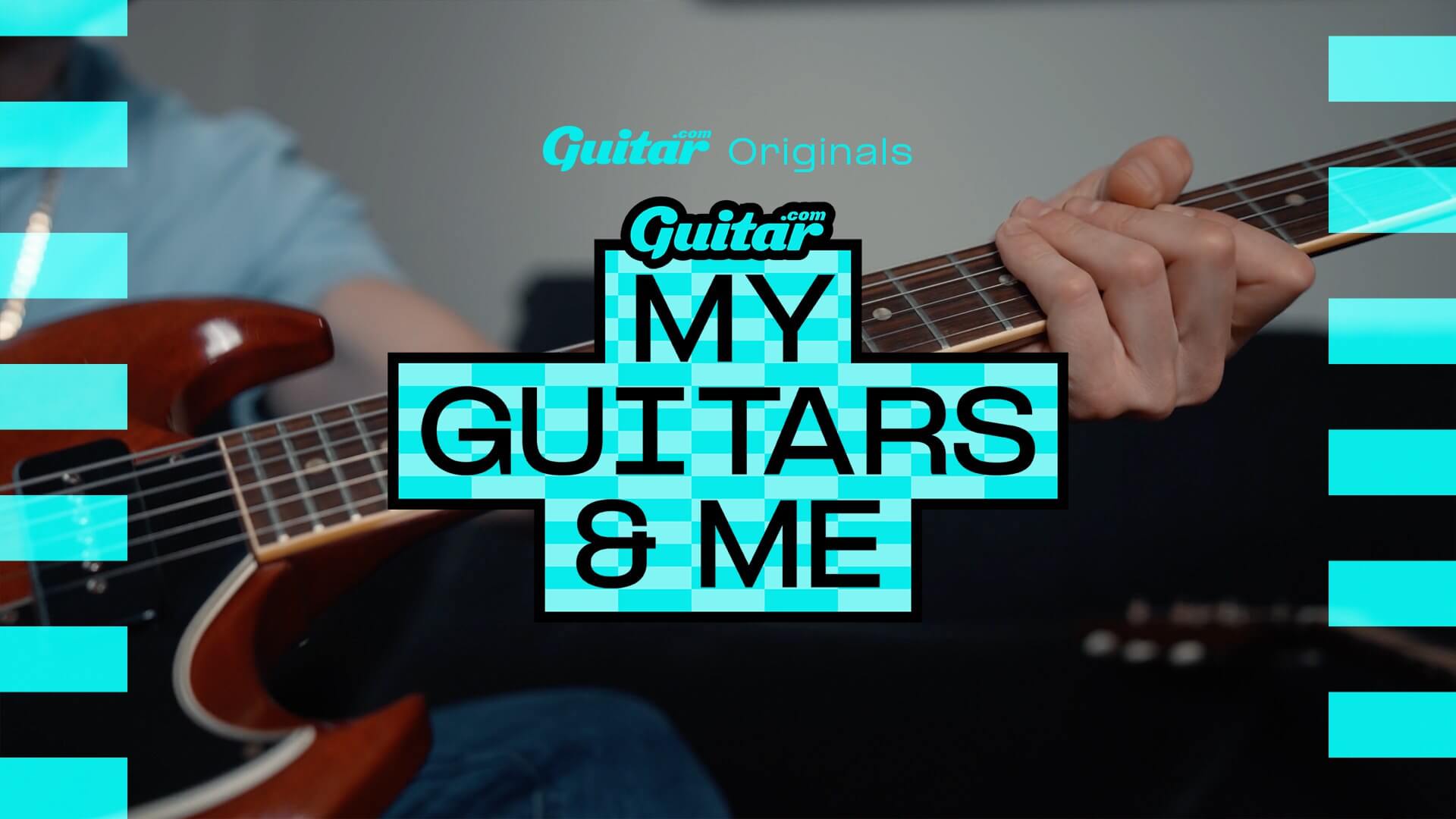Squier Paranormal Rascal Bass – the perfect bass for guitar players?
With an offset body, short scale and two Wide Range humbuckers, is this the bass that can get guitar players depping on four-string without compromises?

Squier Paranormal Rascal Bass
Review Overview
Our rating
9
Our verdict
$449/£389, fender.com
With the introduction of the Rascal Bass HH, Squier has finally given offset fanatics the short-scale bass guitar of their dreams. Released earlier this year as a part of the newest iteration of the highly acclaimed Squier Paranormal Series. These are limited-run instruments that resurrect the more obtuse instruments from Fender’s catalogue while also offering a MCU-style “What If?” version of instruments that could’ve been.
Fender advertises this new Rascal HH as “rewriting the playbook of electric bass design with a greatest-hits-list of features from several eccentric 1960s-era Fender bass models.” And in its spec, that description couldn’t be more accurate.
The Rascal features the body of the Bass VI, the headstock shape of a Coronado, a set of Fender-designed Wide Range humbucking bass pickups, a three-way switch and 30-inch scale with 9.5-inch fingerboard radius reminiscent of the Mustang Bass. It’s available in three classic finishes: Black, Shell Pink and the beloved Sherwood Green.
One of the first things I notice about this guitar is the comfort of the C-shape neck profile, which sits somewhere between the thinness of a Mustang Bass, but not quite as thick as the Precision or Jazz. While Fender has brought back rosewood for its $1,000+ models lately, here at the budget end we still have Indian laurel, though I have to say, it’s one of the closest approximations to rosewood that I’ve seen.

If you expect an affordable guitar from Squier with modern Wide Range humbuckers (and not the recent Cunife recreations either of course) to sound anything like a vintage Wide Range bucker, you’re probably being unreasonable in your expectations.
And indeed, upon plugging into a Rumble Stage 800 2×10, sure enough it doesn’t really sound anything like that – however, that shouldn’t take away too much from the fact that these pickups sound amazing for what they are.
I’m particularly impressed with the punchiness of the neck pickup, which really does a great job of retaining clarity and low-end presence. The lack of muddiness makes the Rascal more than capable of handling everything from funk-style slapping to the more djentle sounds of a band like Sleep Token.
As usual, the middle position gives you both pickups engaged, and I’m instantly enamoured with how balanced the Rascal sounds in this configuration. For gigging bassists, I imagine this will become a favourite setting due to how well it will sit a full band mix.

When playing six-string guitars, I often find the bridge pickup can come across as either thin or very shrill, but nothing could be further from the truth here. It’s thick, warm and chewy, and especially with a bit of dirt engaged, it lends itself to more pick-oriented styles akin to a band like Thursday or Taking Back Sunday.
With its short scale and Bass VI body, the Rascal is a pretty clear attempt by Fender to appeal to offset guitar enthusiasts who want to dabble in a bit of low-end – ‘hi!’ – and in that it’s a pretty perfect proposition.
It’s more than just a fun distraction for guitar players, however – those Wide Range humbuckers sound great, and give the bass a huge amount of versatility for full-time bassists looking for an affordable and great-looking instrument.
As a guitarist who has played bass both as a professional touring musician and more recently as an at-home hobbyist, I can understand the appeal behind this. With the usual impressive level of build quality and finish from Squier, this Paranormal bass is one that belongs in the mainstream.
Like this? Try these
- Sterling by MusicMan StringRay Short Electric bass ($599/£749)
- Fender Vintera 60s Mustang Bass ($1149/£939)
- Epiphone Newport Electric Bass ($449/£439)



